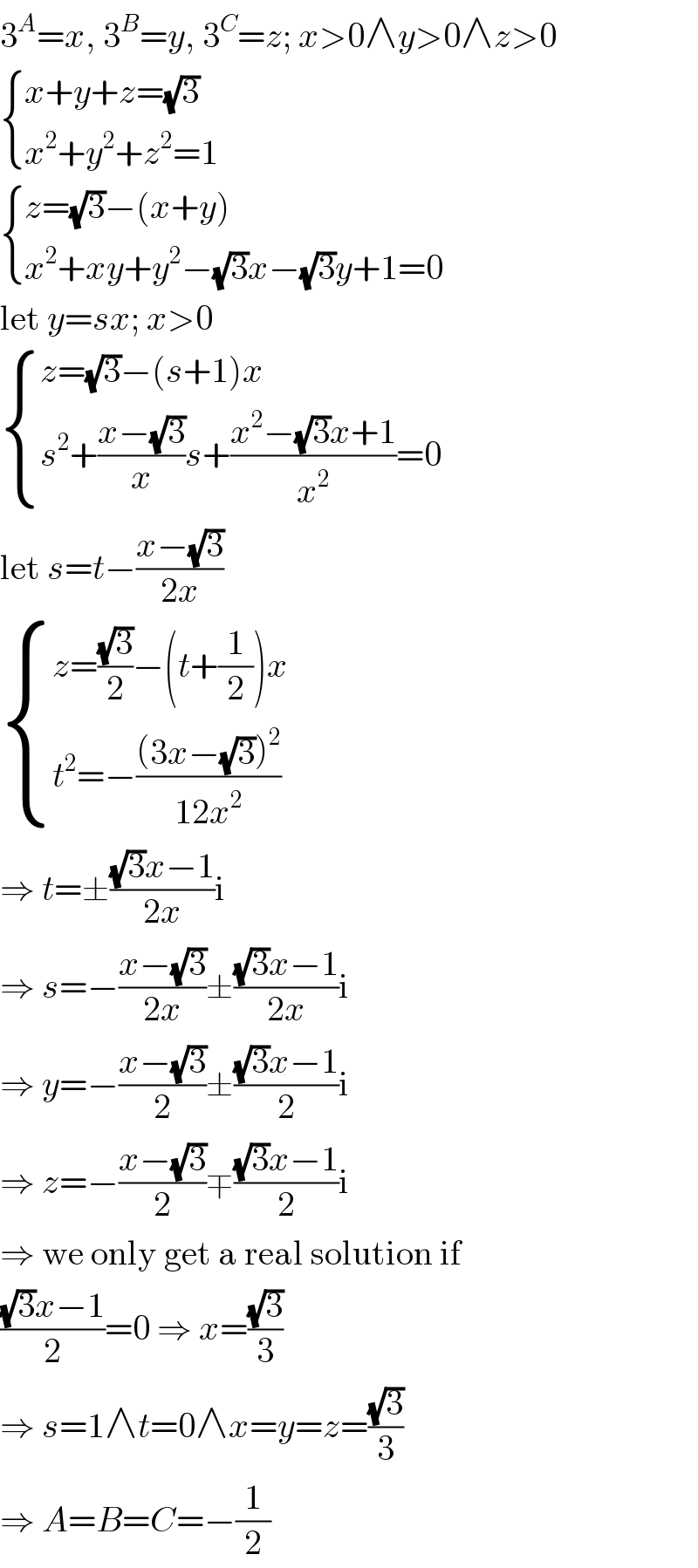Question Number 79127 by ~blr237~ last updated on 22/Jan/20
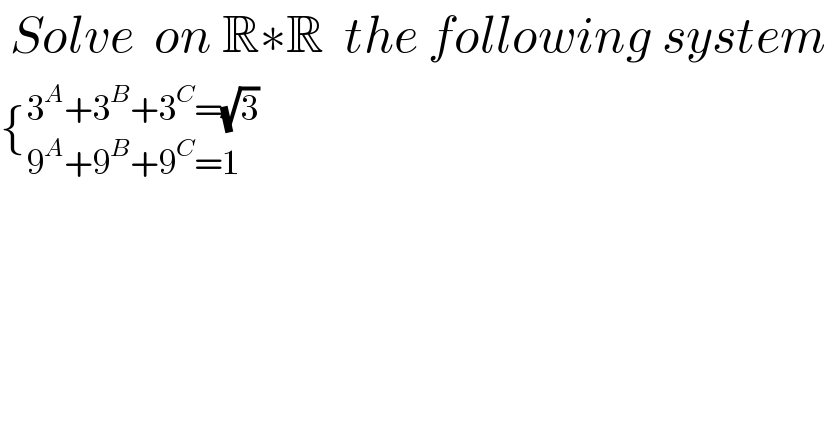
Commented by jagoll last updated on 23/Jan/20

Commented by jagoll last updated on 23/Jan/20
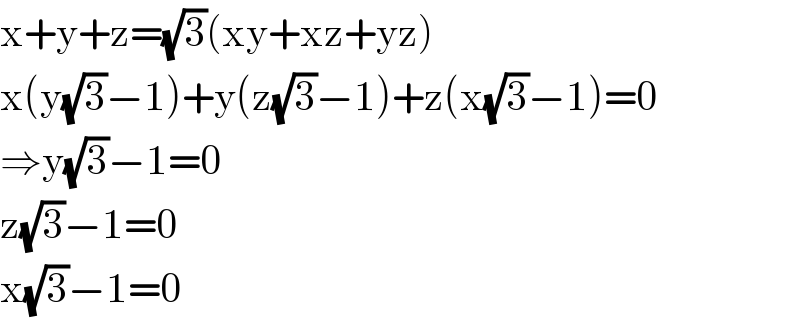
Commented by jagoll last updated on 23/Jan/20

Commented by jagoll last updated on 23/Jan/20

Commented by jagoll last updated on 23/Jan/20

Commented by jagoll last updated on 23/Jan/20
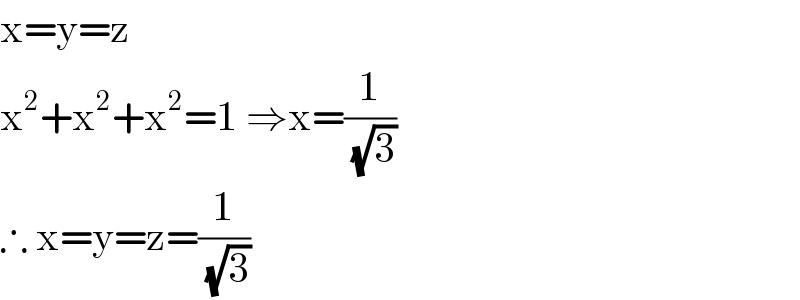
Commented by ~blr237~ last updated on 23/Jan/20

Commented by jagoll last updated on 23/Jan/20

Commented by ~blr237~ last updated on 23/Jan/20

Commented by MJS last updated on 23/Jan/20

Answered by ~blr237~ last updated on 23/Jan/20
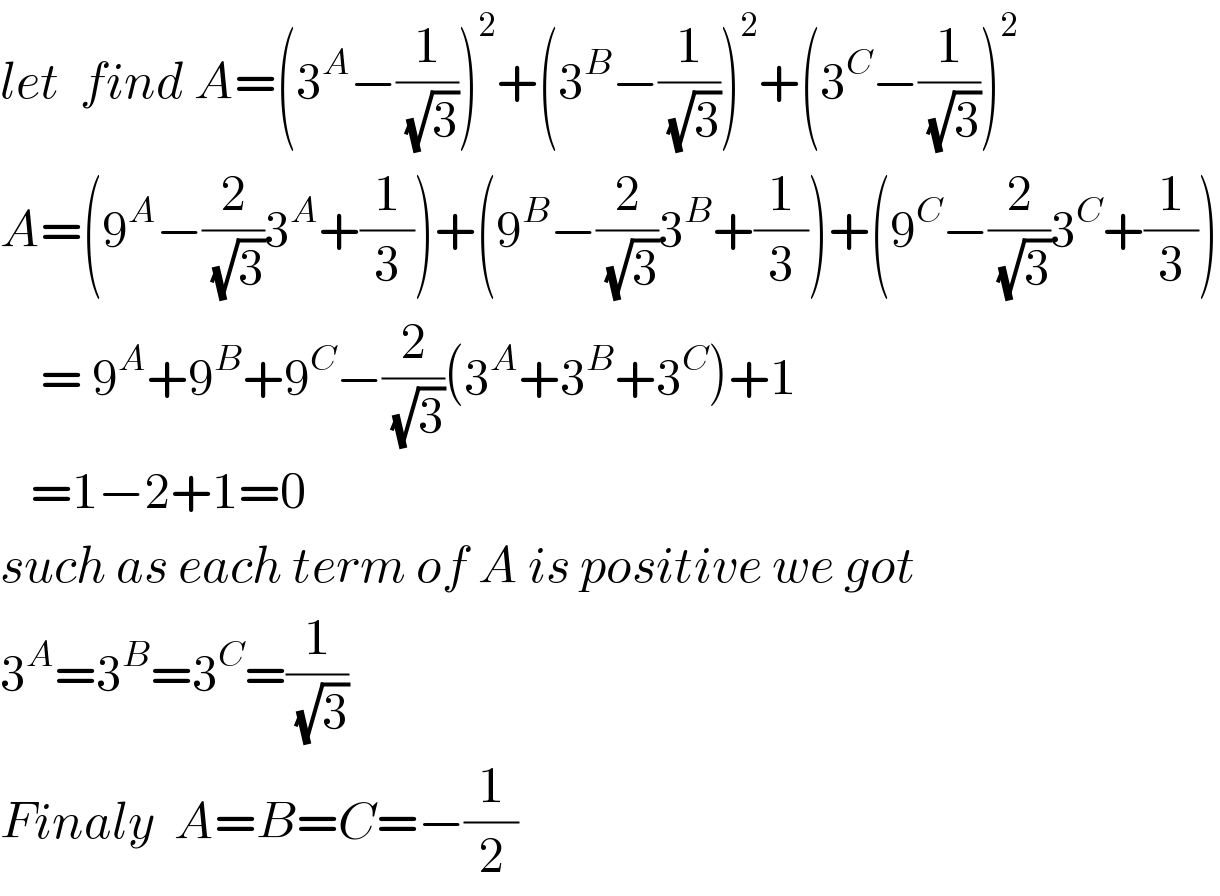
Commented by jagoll last updated on 23/Jan/20

Commented by ~blr237~ last updated on 23/Jan/20

Commented by MJS last updated on 23/Jan/20

Answered by MJS last updated on 23/Jan/20
